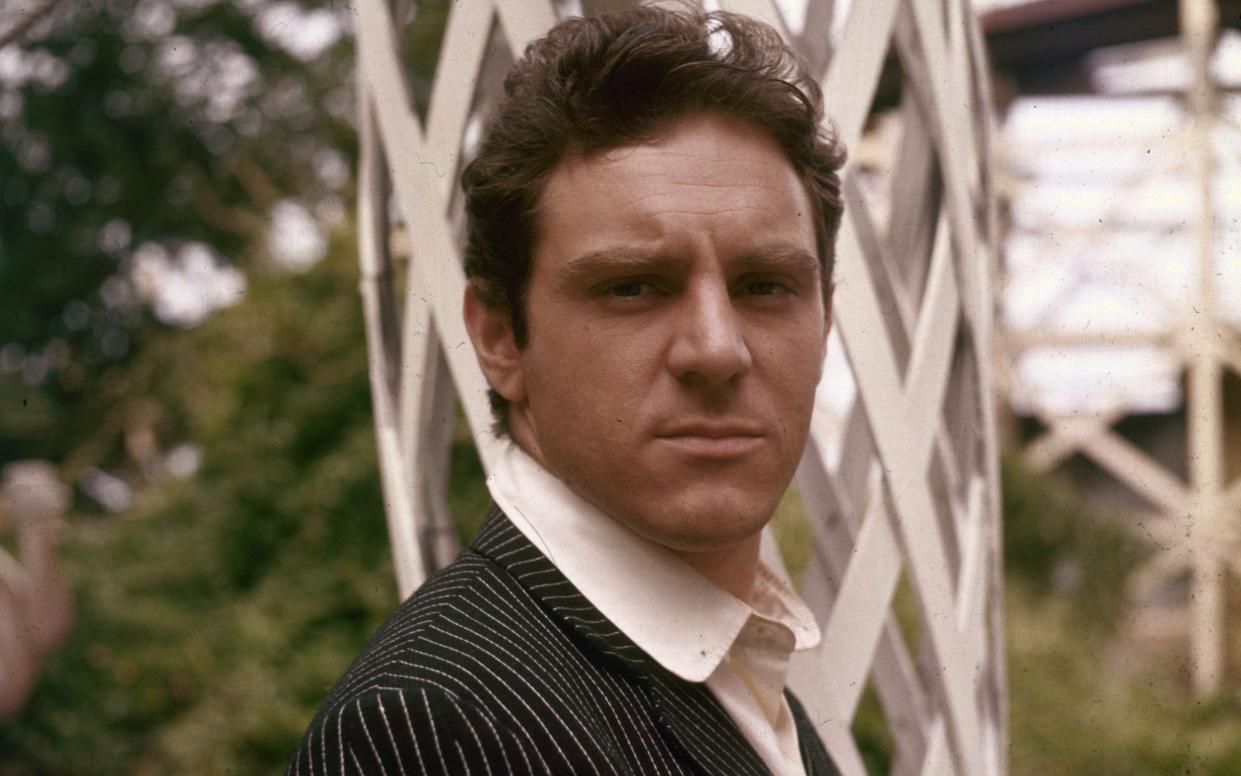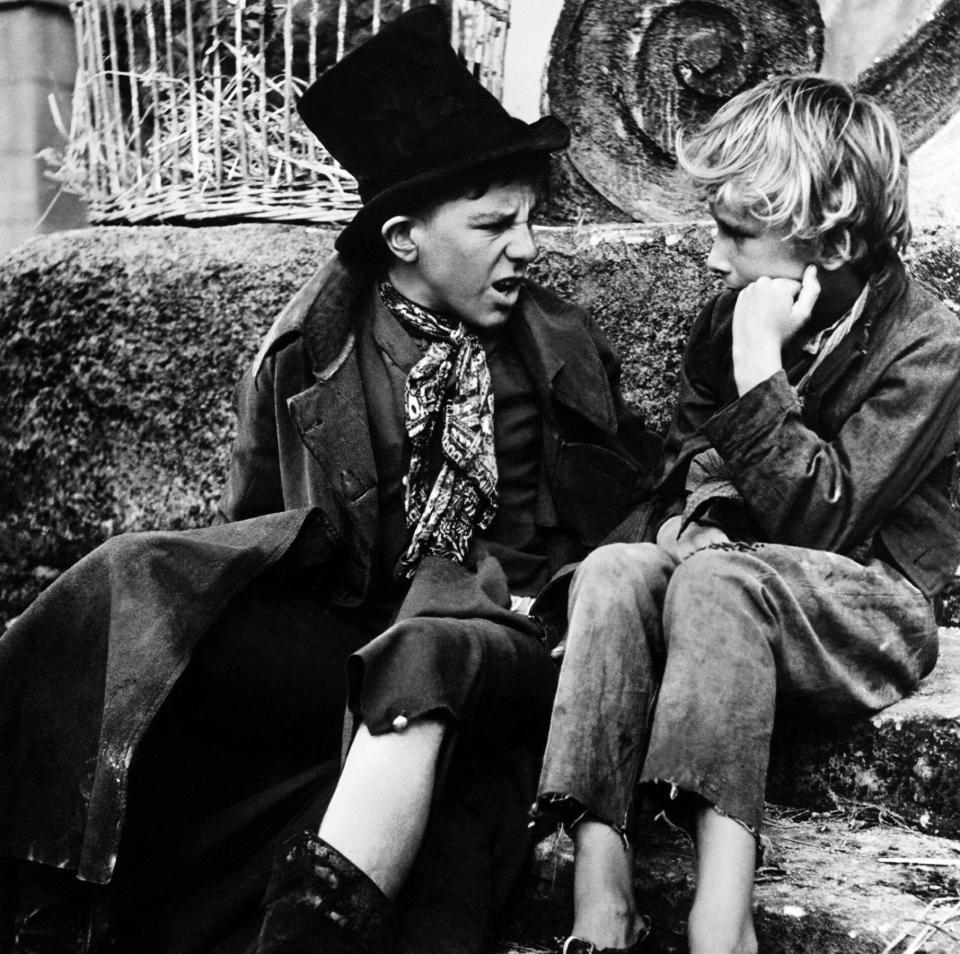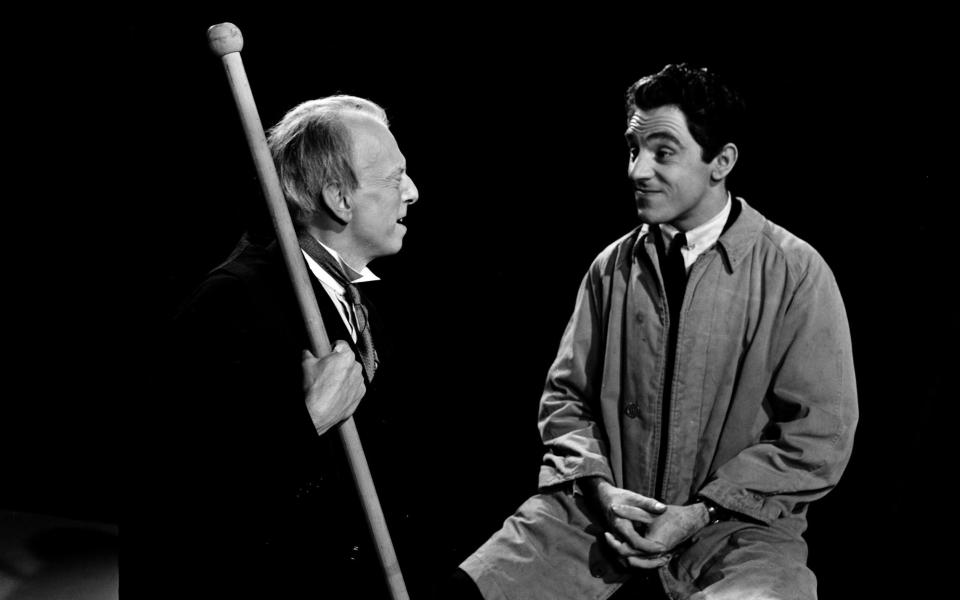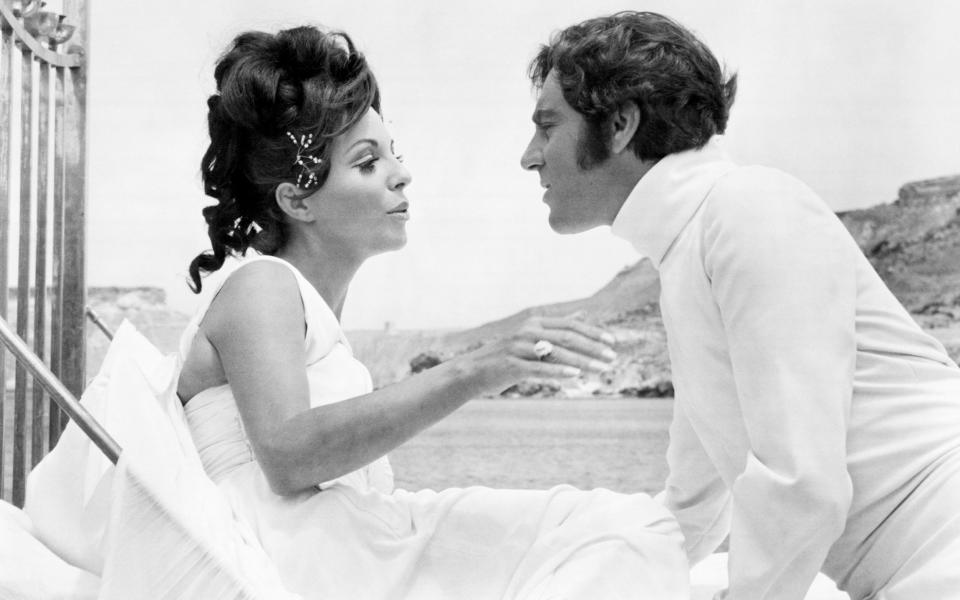How Sixties star Anthony Newley torpedoed his brilliant career

In 2016 an audio recording came to light in which David Bowie mimics other male singers. Horsing around in an outtake during a soundtrack session for Absolute Beginners in 1985, he renders the same verse in different voices: Bruce Springsteen, Marc Bolan, Tom Waits, Lou Reed, Iggy Pop. But in one take, singing in a declamatory holler tinged with Cockney vowels, he seems to impersonate himself. But no, the voice he’s doing belongs to Tony Newley.
Once upon a time, Anthony Newley was everywhere. He was a superstar of the theatre, of big screen and small, a regular in the charts and a giant of Vegas, a songwriter whose songs are still heard all over the world. Such is the almost nonsensical breadth of Newley’s career that those hymning his praises on This Is Your Life in 1992 included on the one hand Burt Bacharach and on the other Reg Varney from On the Buses.
Yet since his death at 67 in 1999, public knowledge of Newley’s greatness has steadily and inexorably faded. To many, the name now means almost nothing. His memory lives on as a ghost in the late Bowie’s voice, and as the third husband of Joan Collins. Indeed, she was talking about his adulteries only last month in Louis Theroux Interviews on BBC Two.
The songs he wrote, some for himself, some for others, are all there on Spotify – the soul-searching ballads What Kind of Fool Am I? and Who Can I Turn To?, the hot sexy Feeling Good and Goldfinger (of course he didn’t sing this, or did he?), the cheesy fantasia Pure Imagination.
Newley was one of the best-selling UK artists of 1960 – with two number ones (Why and Do You Mind?), which superficially chime with the light-pop fashion of the time but offer something a little more soulful and charismatic.

Now a rare chance to hear some of the hits and more live has arisen. Kaplan Kaye, a singing actor, is performing 14 of his favourite Newley songs in a showcase evening in central London.
“I just want his remarkable career as a performer and songwriter to be remembered,” he explains. “Most people have no idea what songs he has written. And in this country I feel he was very underrated. One after another people are going to go, ‘I didn’t know he wrote that.’”
A lot of those songs come from musicals. In the early 1960s Newley met and hit it off with the composer Leslie Bricusse, and together from scratch they wrote two musicals that made a star of Newley in America. Stop the World – I Want to Get Off (1961) was followed by The Roar of the Greasepaint – The Smell of the Crowd (1965). For cinema they then wrote the soundtracks to Doctor Dolittle, in which Newley also co-starred, and Willy Wonka & the Chocolate Factory.
Kaye has only one pop hit to his name: in 1982 he wrote and performed Chalk Dust: The Umpire Strikes Back which spoofed John McEnroe’s tantrums. Then he went into management. Yet his earlier career does have something in common with Newley, whose first major role was as the Artful Dodger in David Lean’s 1948 version of Oliver Twist. Kaye too was a child actor, playing young Scrooge on television and appearing in many West End musicals including Oliver! in the 1960s.
They even met when Kaye was a teenager. “My father Davy Kaye was a comedian,” he says, “and his agent at the time was Joe Collins, Joan and Jackie’s father. My dad had parties at his flat in Marylebone and once Joan turned up with Tony Newley.”
The career of Newley is full of strange left turns that go some way to explaining why he resists definition. It was only by accident that he became a pop star when in 1959, having appeared in several films, he was cast in Idol on Parade as a Cockney rock’n’roller doing his national service. The film was intended as a spoof of Elvis Presley, but its unintended result was to turn Newley into a saturnine rival to Cliff Richard when he had a number 3 hit with I’ve Waited So Long.

A year later he was in ATV’s The Strange World of Gurney Slade, playing an actor who walks out of a live television recording to wander the streets of London. A meta-drama about the little box in the corner that pre-empted The Truman Show by decades, its surrealism baffled audiences but earned Newley a cult status.
“It was the television series that made me want to sing like him,” recalled Bowie, “not the records. It was very odd. In fact, The Strange World of Gurney Slade was the reason that I liked Tony Newley.”
The musicals were similarly challenging think pieces that happened to contain great songs, which may explain why revivals have been rare. When Newley directed a West End revival of Stop the World in 1989, it hadn’t aged well and closed after 52 performances.

By the end of the 1960s Newley – who had turned down the leads in Alfie and Saturday Night and Sunday Morning – was such a huge star he was offered the chance to make any film he wanted. The result was Can Heironymus Merkin Ever Forget Mercy Humppe and Find True Happiness? which Newley wrote, directed and starred in (alongside Joan Collins). The confessional sex comedy with songs was a calamitous vanity project which sabotaged his marriage and his career. The New York Times called it “an act of professional suicide”. After that, only Vegas and the Catskills would have him.
Newley’s attempt to return to Broadway with a musical about Charlie Chaplin in 1983 opened in Los Angeles but never made it to New York and lost $4 million. In 1992 he had a final triumph onstage back in the West End in Bricusse’s Scrooge musical. His very last performance, as a wily priest in an episode of Jimmy McGovern’s The Lakes, showed in the year of his death from cancer what a significant acting career he might have had if he had not been stretched this way and that by the sheer range of his gifts.
To see him return in a tribute show for one night only might be thought bathetic. But the plan is to take it further. “I’m doing this to see if it works,” says Kaye. “Then we’re going to put it in smaller theatre venues. I think it is going to work because I know the songs are so strong.”
Kaplan Kaye presents Nearly Newley at the Water Rats Theatre, Grays Inn Road WC1. For free tickets phone 02072783248
